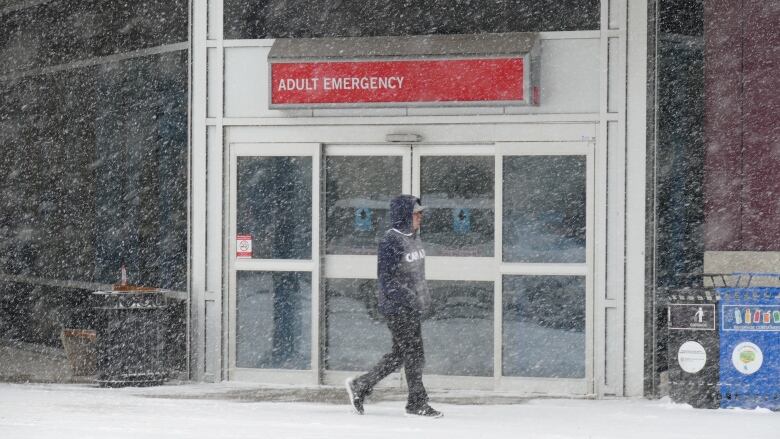Winnipeg will expand hospital capacity as facilities face surge of COVID-19 patients: chief nurse
Lanette Siragusa says off-site expansion needed before Winnipeg hospitals cannot handle a surge of patients

Health officials in Winnipeg are scrambling to expand capacity at hospitals for the sickest of patients and temporarily create off-site spaces for those who aren't as ill.
Shared Health Chief Nursing Officer Lanette Siragusa said Friday the province has no choice but to cancel non-urgent surgeries, create capacity and develop remote beds as the available room for critically ill patients vanishes.
Otherwise, "we'll reach a point where our capacity cannot stretch enough," she said.
The province announced 480 new cases of COVID-19 on Friday, more than doubling Manitoba's previous record for a single-day jump. The province also announced the Winnipeg region will move to the red, or critical, level of Manitoba's pandemic response system as of Monday.
"These numbers are concerning and with these daily case counts increasing, we can expect there's going to be more hospitalizations in the next week or two, and that is why we will be moving towards ramping down services along with the red restrictions," Siragusa said.
In addition to creating more space, visitations will be suspended at Winnipeg hospitals under the new restrictions, with exceptions on a case-by-case basis (for patients receiving end-of-life care or pediatric patients, for example).
Elective and non-urgent surgeries and diagnostic surgeries will be put on hold — after 99 non-urgent procedures were already suspended this week, Siragusa said.
Only three of Winnipeg's 71 critical care beds were vacant as of Friday morning, Siragusa said — an occupancy rate of 96 per cent.
St. Boniface Hospital in Winnipeg was forced to stop taking any more critical care patients Thursday, as its 14-bed intensive care unit was full.
Staff redeployed, rooms rearranged
Given the dire bed shortage, Siragusa said the province must expand capacity to prepare for a further surge of hospitalizations. There were 104 people in hospital with COVID-19 on Friday, another record. That included 19 people in intensive care with the illness.
Siragusa outlined a three-phase for expanding hospital capacity.
Initial steps involve an immediate expansion of bed space by redeploying staff and modifying rooms, she said. Some staff will be freed up from swabbing sites once new trainees take over.
"We planned for this scenario in the spring," she said. "We never had to implement it, because the public health precautions worked."
The second step would involve further expansion, which "may require some modification or equipment delivery" of existing physical spaces, she said.
WATCH | Hopefully there's no need for life-and-death decisions, top nurse says
A third phase would involve off-site expansion if necessary, she said.
"This expansion would not be specifically for COVID patients," she said, but would be for "fairly stable" patients who need care that can be delivered in a non-hospital setting.
Moving those non-COVID patients would free up space for more urgent cases, such as patients with COVID-19, she said.
Some health-care workers will likely be shifting to the bedsides of critical care patients, which may not be the work environment some are used to, said Manitoba Association of Health Care Professionals president Bob Moroz.
"We're bolstering the lines.… That, in itself, is not a bad idea," he said.
"The problem is, how did we get here right now, where we have to scramble at a crisis moment? Government has had months and months to plan for this and … they've done nothing to bolster their services."
The Manitoba Nurses Union said the tighter restrictions coming into effect next week — including the closure of bars and dine-in restaurants in Winnipeg — are necessities in the absence of rapid testing and robust contact tracing.
"There's no flex in the [health-care] system when it comes to staffing," president Darlene Jackson said. "I think that now is the time to really take action on this pandemic."
Siragusa said at Friday's media briefing the province is actively recruiting casual and term employees. The province receives around 50 applications a day, she said.

Before Friday's announcement, the Health Sciences Centre and Grace Hospital in Winnipeg were moving quickly to make room for critical care patients, according to a memo from St. Boniface Hospital president and CEO Martine Bouchard.
She noted one patient had to be admitted to the hospital's cardiac surgery unit, but that unit cannot handle any more admissions because several staff members are self-isolating.


